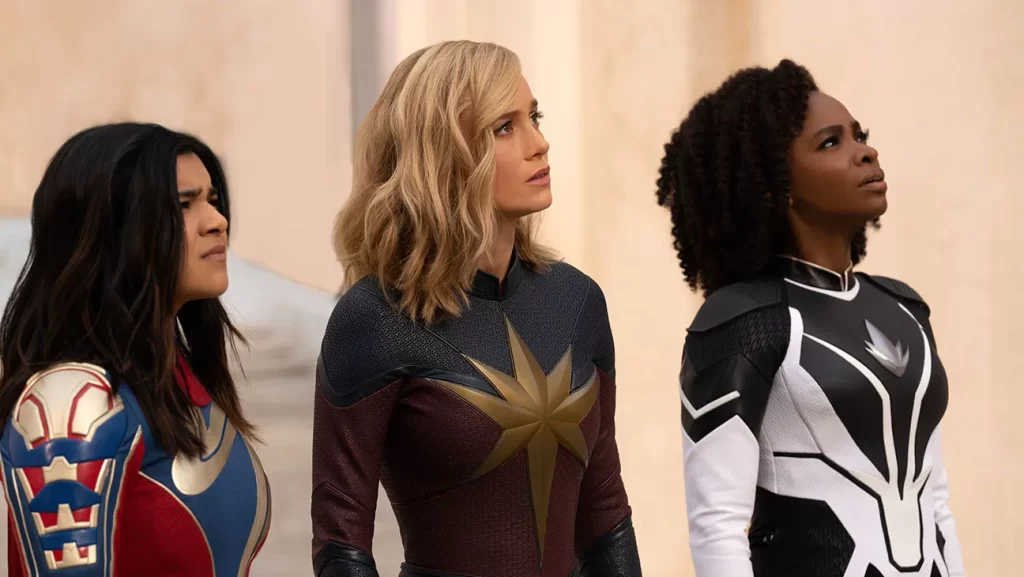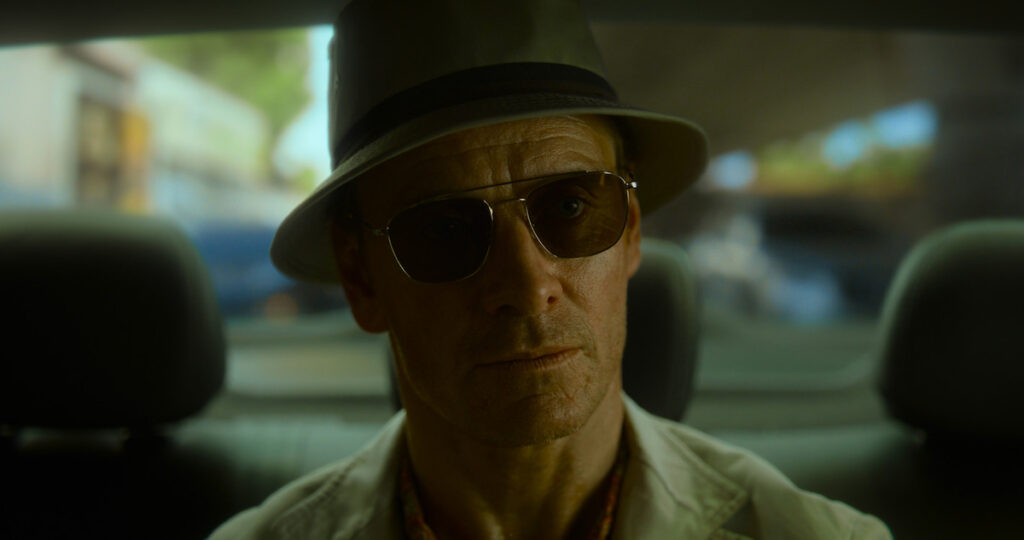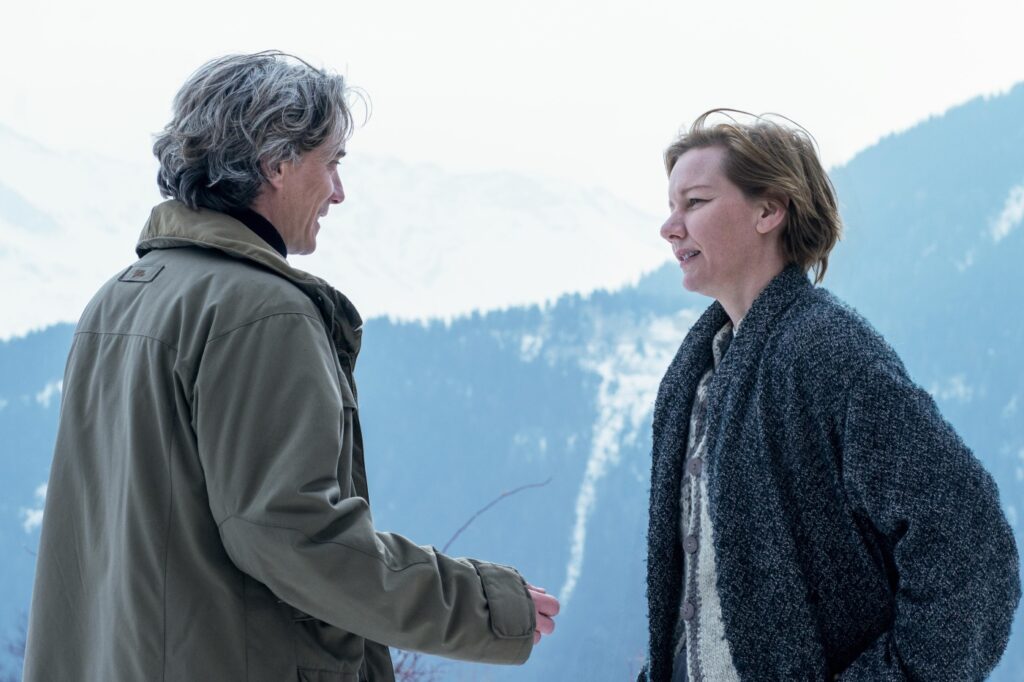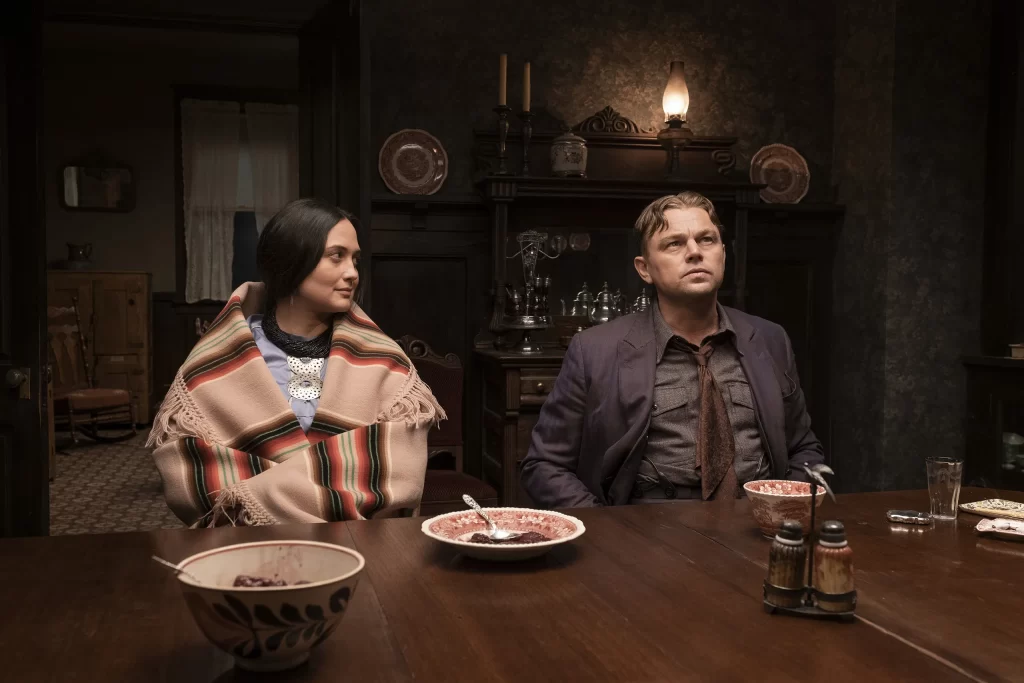The Marvels: O Captain, Why Captain

The title of The Marvels doesn’t appear on screen until the end, but it’s announced verbally midway through, during a cutesy scene where the three main characters debate potential nicknames for their improbable team-up. It’s easy to condemn such dialogue as unduly meta, but the problem with The Marvels isn’t the Marvels; it’s Marvel, singular. On its own terms, this movie exhibits its fair share of appealing qualities: charming actors, playful humor, a generally buoyant tone. But it can’t really exist on its own terms—not when it’s constantly being pulled into the yawning black hole that is the Marvel Cinematic Universe.
This is partly a matter of laborious franchise integration. Multiplex attendees have long since accepted the term “threequel,” but logistically speaking, The Marvels is essentially a triple-sequel, providing a conjoined follow-up for its three disparate members. Most obviously, it operates as a successor to Captain Marvel, the 2019 smash hit that introduced Carol Danvers (Brie Larson) as the final piece of the superhero puzzle before the studio delivered the ultimate crossover event with Avengers: Endgame. That behemoth may have concluded with a sense of nominal finality, but while it said goodbye to several of the series’ biggest stars (most notably Robert Downey Jr.’s Iron Man and Chris Evans’ Captain America), it hardly turned off the corporation’s lights; there have since been eleven additional feature installments, along with quite a few TV series—two of which factor in here. WandaVision introduced Monica Rambeau (Teyonah Parris), the daughter of Carol’s old friend Maria (who also appeared in Captain Marvel, which actually took place in the ’90s and, look, just go with it); Monica acquired her own superpowers when she waltzed through the force field that was trapping Wanda Maximoff in the fabricated town of Westview, and she now serves as a galactic sentry for Nick Fury (Samuel L. Jackson). And then there is Kamala Khan (Iman Vellani), the New Jersey teenager who morphed into Ms. Marvel on the show of the same name, and who has long nurtured a celebrity crush on one Captain Marvel. Read More




